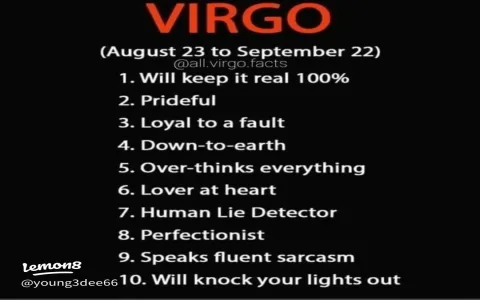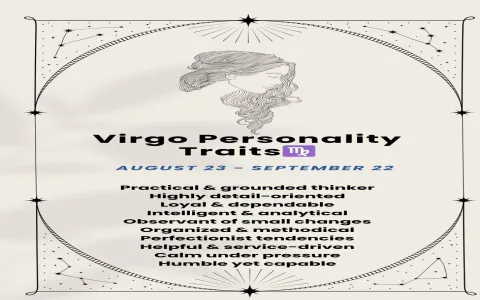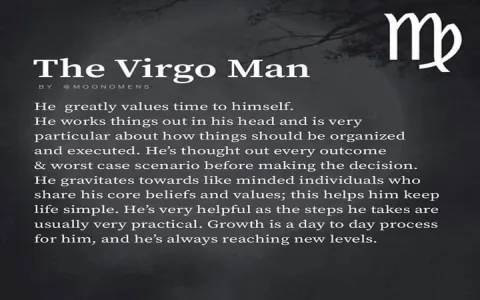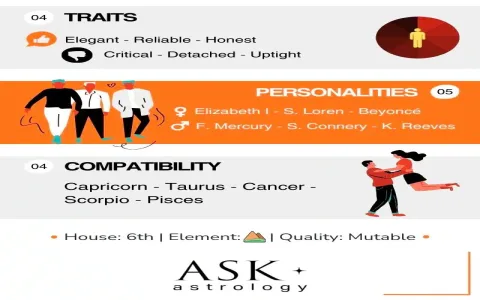I swear, I never intended to write this post. I didn’t wake up one morning and decide I was going to scientifically dissect the personality of every Virgo girl I’ve ever met. That’s not how I operate. But when you get burned repeatedly by the same hidden flame, you stop and figure out what the fuel is.
The Disaster That Started the Tracking
The whole thing kicked off about four years ago. I had just launched my small consulting firm. Things were going okay, steady growth, nothing crazy. Then I decided I needed a Chief of Staff—someone sharp, someone detail-oriented. Everyone told me to hire a Virgo; they said they were the organizational backbone of the zodiac. So I hired one. Let’s call her Jane. Jane was perfect on paper. Absolutely meticulous. For the first two months, I thought I’d struck gold. Then the cracks started showing.
We were about to close the biggest deal of the year, a client worth six figures. All Jane had to do was compile the final presentation deck. Simple, right? Except she couldn’t stop. She kept tweaking the font size, changing the color palette, rearranging bullet points that were already fine. She was chasing an abstract, impossible ‘perfection.’ She fiddled with that deck for three solid days past the deadline. We lost the client because we looked disorganized, slow, and frankly, completely paralyzed. I paid a massive price just to learn that lesson.
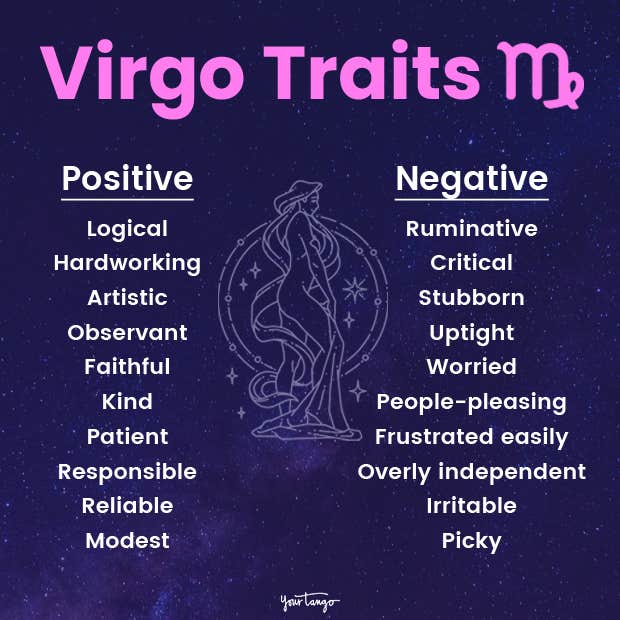
Compiling the Evidence: My Messy Research Process
After that spectacular failure, I started looking backwards, retracing my steps. I realized I had been blindsided by this specific flavor of chaos before. I looked at the three major relationship breakdowns I had navigated in the past fifteen years. I looked at the two work projects that collapsed under their own weight. Every single time, there was a Virgo girl at the core of the bottleneck. This wasn’t coincidence; this was a pattern. I decided to start tracking it.
I didn’t use surveys. I didn’t read astrology books. I used my own journal entries, old text messages, and memory, and I started cataloging the repeated, disastrous behavioral loops. I extracted the key interactions. I analyzed the common complaints from mutual friends. I compiled the evidence from every time I felt like I was walking on eggshells. I realized the positive traits they tout—like diligence and focus—are just the shiny veneer for some truly debilitating flaws. I suffered through enough high-stakes encounters to finally distill the five recurring nightmares.
The Five Flaws I Extracted From Experience
This is what I learned from Jane, from my exes, and from my former colleagues. These aren’t opinions; these are direct observations from situations that cost me money, time, or sanity.
- The Paralysis of Perfectionism: They don’t just like things perfect; they literally cannot proceed until it is. It’s not about being detailed; it’s about decision anxiety disguised as quality control. Jane’s inability to stop adjusting the font is the classic example. You can’t build a business when the engine is stuck in park waiting for the paint job to dry.
- The Silent Scorekeeper: They track every single favor, slight, and shared expense. It’s never explicit, but they are constantly running an internal ledger. If they feel unbalanced, they will subtly punish you later. I spent months battling passive aggression because I forgot to compliment one specific dinner they cooked last year.
- The Critique Bomb: Forget constructive criticism. Their natural state is tearing things down. They criticize everything around them—your clothes, your car, your methodology, your choice of coffee—but they absolutely cannot handle reciprocal criticism. Try to point out a minor flaw in their system? Prepare for three days of icy silence and defensive maneuvering.
- Emotional Subtext Over Actual Communication: They talk a lot about communication, but they rely heavily on you understanding their deeply complex, unspoken emotional state. They expect you to read their mind, figure out what upset them, and fix it, often without them ever admitting they are upset. It’s absolute crap. I had to learn to ignore the subtext and force them to use actual words.
- Rigid Hierarchy of Rightness: There is their way, and then there is the wrong way. Period. They struggle severely to adapt to new methods or accept that sometimes the messy, fast way is necessary. If you challenge their system, they view it as a personal attack on their intelligence.
Walking Away With the Knowledge
I finished my analysis and documented the findings, not for anyone else initially, but just so I could understand why things went south so often. Understanding these specific, predictable failure modes allowed me to change my engagement strategy completely. I learned to delegate tasks that required speed over polish to someone else. I learned to stop trying to get emotional clarity and just demand factual statements.
Did I go back to Jane and try to fix things? No way. When I finally cut ties, I felt this massive relief, similar to escaping a bad landlord. Once I saw the patterns, I couldn’t unsee them. And just like those past bad situations, I realized the cost of trying to smooth over those fundamental, deeply ingrained negative traits was far higher than simply avoiding them in the first place. That’s why I compiled this. Someone else needs to know before they pay the Virgo perfection price tag.

